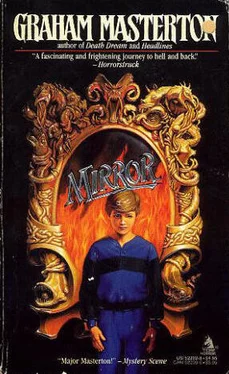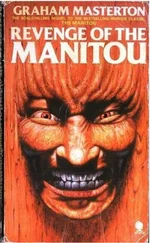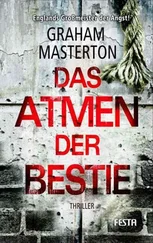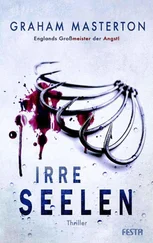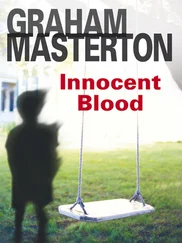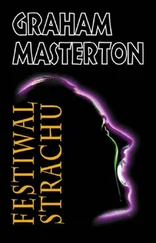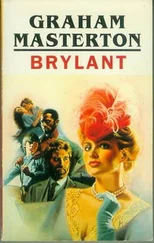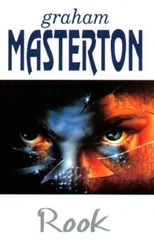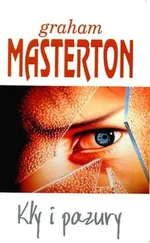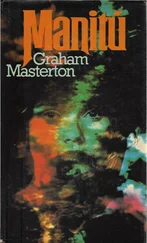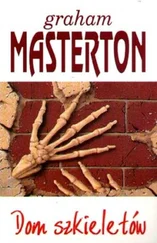Jacob Levitz, however, was thrilled with his discovery. He called him 'the Boy Shirley Temple'. His only stipulation was that the boy would have to change his name. 'Walter Lemuel Crossley' didn't sound like a five-year-old child movie star; it sounded more like a middle-aged insurance agent from Boise.
Metro held a 'Name the Child Star' contest in the newspapers, and the short list of names was sent to Louis B Mayer. Mr Mayer read them, hated them all, and scribbled in the margin, 'B. Awful'. This half-illegible comment was taken by a wholly illiterate secretary to be Mr Mayer's own suggestion for little Walter's new name, and she typed it and sent it to the publicity office. At least, that was the way that Mr Mayer told the story, and Boofuls himself never contradicted him.
Whistlin Dixie, of course, became one of the most successful musicals of all time. Booful's show-stopping song 'Heartstrings' sold more copies that year than 'All My Eggs in One Basket'; and when he accepted his Oscar in 1937 for Captains Courageous, Spencer Tracy joked that he had only beaten Boofuls for the award 'because they thought it was too heavy for him, and he might drop it'.
Boofuls never won an Oscar, although one hit musical followed another - Dancing on the Clouds, Surname Song, Sunshine Serenade, and Flowers From Tuscaloosa. Boofuls appeared on the cover of every major magazine, golden-haired, shining-eyed, from Screenland to McCall's. It was reported in Variety in the spring of 1938 that he was a millionaire six times over. Just before Christmas, 1938, he and his grandmother moved into a huge white mock-Gothic house on Stone Canyon Drive in Bel Air. They engaged sixteen servants, including a butler and a cook; two private tutors; a dance teacher; and a drama coach. They owned seven automobiles, including two white Lincoln limousines, one for each of them. They named the mansion 'Espejo'.
In June 1939, Boofuls was cast for the leading role of Billy Bright in Jacob Levitz' most ambitious musical to date — a nine-million-dollar production called Sweet Chariot. Billy Bright was supposed to be a dead-end kid accidentally shot dead while trying to prevent his father robbing a bank - to become (almost inevitably) a do-gooding angel.
On Friday, August 18, three days after the start of principal photography, Boofuls was driven home in his limousine from M-G-M at 5:27 p.m., according to the log kept by doorman Henry Polowski. He was seen by a group of fans turning into the east gate of Bel Air, and he waved to them and smiled.
His head gardener, Manuel Estovez, saw Boofuls come out onto the loggia at the back of the mansion at approximately 6:12 p.m. He was wearing a yellow short-sleeved shirt and white shorts and white ankle socks. He waved to Mr Estovez, and Mr Estovez waved back.
Shortly after 6:21 p.m., the Bel Air police received a garbled telephone call from the Crossley mansion, a woman's voice saying, 'He's dead now. I've got him at last. He's dead.' A police patrol arrived at the house just before 6:35 p.m. and gained entry to the house through the French windows which overlooked the swimming pool. It appeared that - unusually — all of the indoor servants had been given the day or the afternoon off.
Inside the white-carpeted sitting room, they found what was left of Boofuls — 'chopped into spareribs', as one officer put it. Another officer said that he had never seen so much blood in his life. A quick search of the twelve-bedroom house also revealed the body of Mrs Crossley, hanging by a noose from the wrought-iron chandelier in the main stairwell, half strangulated but still alive. She died twenty minutes later without saying anything at all.
The coroner's verdict three weeks later was that Mrs Alicia Crossley had murdered her grandson, Walter Lemuel Cross-ley, while suffering from temporary mental disorder and had then taken her own life. Boofuls was buried with unusual quietness at Forest Lawn. The horror of what had happened kept many people away - the thought that they were burying nothing more than a box of bits. A plain white Carrera marble headstone was erected, with the simple gold inscription 'boofuls, 1931-1939'. You can still see it now.
Over the years, nine books had been written about the Boofuls murder, probably the best of which was Boofuls: The Truth) by Kenneth Mellon. Martin had read them all; and to put it kindly, some of them were more sensational than others. All of them agreed, however, that Mrs Crossley's irrational attack on her celebrated young charge could probably be traced back to earlier bouts of depression that she had suffered when she was younger. She had lost a little boy of her own in 1911, and after she had given birth to Mary, Boofuls' mother, she had been warned by her doctor not to get pregnant again.
Three of the books suggested that Mrs Crossley was taking revenge on Boofuls for her daughter's suicide attempt and subsequent death. Punishing him, as it were, for living a life of wealth and fame when her dear dead daugher had died in poverty, and known none of it.
The author of Hollywood Hack! claimed that she had killed Boofuls to get her revenge on his unknown father, but there was no serious evidence to support this theory, and in any case nobody had ever been able to find out who his unknown father was. Some reporters had pointed their finger at Howard Q. Forbes, the vice-president of Ressequie State Insurance, but Howard Q. Forbes had been balding and bespectacled, with a cardiac history, and even if it was not impossible that he was Boofuls' father, it seemed at least unlikely.
There was an unconfirmed report that Mary Crossley had been seen one night on Kootenal Street in Boise in the passenger seat of a large black Cadillac limousine, but the supposed witness had later admitted that he might have been 'overtired'.
Martin had collected scores of magazine articles, too — even the ridiculous 'true life' dramatizations from Thrilling Detective and Sensational Police Stories. 'The tiny body desperately twisted and turned beneath her as she hacked into his snow-white sailor suit with her blood-spattered cleaver.' Boo-fuls hadn't been wearing a sailor suit, of course; and oddly enough, the murder weapon had never been found.
In spite of Boofuls' gruesome and infamous death, however, Martin had always felt that the child had been possessed of some kind of special magic. Some incandescence that was almost unreal. His friend Gerry at the M-G-M library had videotaped all of Boofuls' musicals for him, and he watched them again and again. Every time he saw that curly-headed little boy dancing and singing, he found it harder to believe that a seven-year-old could have such brightness and energy and wit, such absolute perfection of timing.
Every time he looked at Boofuls' movements, listened to his breathing, watched his choreography - and in particular when he looked at his eyes - he felt as if he were watching a grown man masquerading in a child's body.
'He passed me by as close as this, and I wasn't mistook. I saw it clear like daylight. He was white, white like bone, and his eyes were empty, no eyeballs, just like a skull, and naked teeth.' Martin had played the fifty-year-old newsreel over and over. The same blurting sound track, the same flickering of flashbulbs, the same evasive ducking of the head, as if Henry Polowski had been damned by his inattention to play the same scene over and over and over again. 'And what did you do, Mr Polowski?' 'What would you do? You wouldn't believe your eyes. You can laugh all you want, but it was a genuine premonition. I saw it, and if you don't believe it, then that's your problem, not mine.'
Martin switched off the video recorder with his remote control. It was almost ten o'clock; and in twenty minutes he had an appointment with June Lassiter at 20th Century-Fox. He knew June well enough to wave at her across the crowded bar of the Cock 'n' Bull, and to be assured of a wave back; but he didn't know how sympathetic she was going to be to the idea of a big-budget musical. Especially a big-budget musical about Boofuls.
Читать дальше
